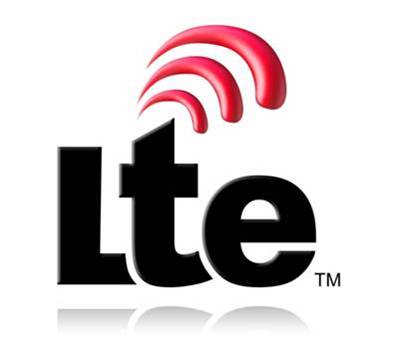
GM launches in-car hotspots from Autonet Mobile
In-car Wi-Fi isn't a completely terrible idea; and having a reliable connection to the Internet could significantly change car travel for everyone involved. A DIY car stereo, for example, could be equipped with free services like Pandora, Shoutcast, and Mediafly for the driver, or headrest-mounted monitors could stream Netflix for the passengers. These sorts of things could be handy on any length trip, and there are forums all over the place for enthusiasts looking to build systems which could benefit from a broadband connection.
Today, General Motors announced it has begun offering "Chevrolet Wi-Fi" in seven of its current generation Chevrolet vehicles: Equinox,Traverse, Silverado, Tahoe, Suburban, Avalanche, and Express. The service is provided by Autonet Mobile, which provides connectivity to select Chrysler, Dodge and Volkswagen automobiles as well.

The wireless data paradox: AT&T asks you to use less data
So let me get this straight: AT&T says iPhone users are using too much data. And to ease the resulting strain on its network, the carrier wants to...(ahem)...encourage its customers to throttle back on YouTube, live-streamed radio, and other media-rich apps. A week after playing the good guy with "Mark the Spot," a handy iPhone app that lets users report on coverage dead zones, AT&T is reversing any goodwill gained by warning heavy users they may soon face extra charges for their data gluttony.
Someone please tell me this is little more than a badly thought-out joke.

The umpteenth Google Phone: What we can learn from what we don't know
A few years back, a tip for marketers that had been passed around with regard to search engine optimization was this: Drum up a phrase and build buzz around the phrase, so as to improve your standing in Google's search index. Later, you can then use the phrase in its branding and your path to contextual glory will be paved in advance. Apparently Google was reading that tip too, because it managed to create buzz over the weekend for a Google Phone even though -- at least from T-Mobile's perspective -- there's already more than one.
Google officially declined comment on a multitude of questions Betanews posed this morning, although one of the declined questions was significant for its having been declined. It did not specifically regard the Android phone whose existence Google confirmed in a blog post Saturday morning. It was more of an analyst question: What did Google expect the balance of its operating expenses to be, between manufacturing and R&D, going forth into 2012?

Scandinavian 4G networks go live today
Speed is everything.
In its path to faster 4G wireless connectivity, Sweden-based telephone company TeliaSonera has shifted its network rollouts into high gear. In just over six months, it turned a single LTE cell site into a full deployment in Stockholm, Sweden; and it has taken its 4G network in Oslo, Norway from idea to reality in just eleven months.

Microsoft should take Zune to the cloud, offer music for any device
There has been much speculation and punditry about why Apple bought music streaming/sharing service Lala, with cloud services being the biggest reason. I don't agree with this cloudy reasoning, but it got me to thinking that a music cloud service would be helluva good idea for Microsoft -- and the company has been there before.
Apple wasn't motivated to buy Lala to offer cloud services, even though that may eventually be the outcome. As I explained last week, Apple has two conjoined objectives: Thwarting Google competition and improving music discovery. Strangely, Microsoft shares the same reasons and has another: A broken mobile OS/device strategy.

The case in favor of the open source enterprise database
Linux and open source middleware JBoss has made its mark in the enterprise, and it is just a matter of time before open source becomes mainstream in other functional parts of the IT infrastructure as well. Where exactly that will happen, however, is the interesting question.
With most companies spending 10 to 20 percent of their revenue on enterprise software, many IT managers would love to see more enterprise-class open source options. However, IT architects and project managers of IT tend to be cautious -- the back office has a low tolerance for risk, which makes it difficult for projects to gain entry into that exclusive back office.

Oracle promise to chuck GPL for MySQL PSE pleases EU
This morning, the European Commission has welcomed a set of commitments made by Oracle to maintain, and even enhance, the viability of the MySQL division of Sun Microsystems, after Oracle's acquisition of Sun is complete. This even though neither Oracle nor Sun are European companies, though they both do business in Europe, and MySQL maintains one headquarters branch in its native Sweden.
The concessions may be considered a big win for outgoing Commissioner for Competition Neelie Kroes, whose job swap will see her in Viviane Reding's seat next month. The Oracle + Sun deal had already been cleared by US regulators, and had been pushed by a majority of US senators from both parties. Fifty-nine of those senators wrote Comm. Kroes last month pressing her to accept the deal and move on, which prompted her last week to make a public comment literally telling senators to shut up and go fix health care.

Google Nexus One phone rumors show the power of buzz
Rumors and scattered confirmations that Google would sell its own, branded Android-powered phone are seemingly everywhere this weekend. The noise is so loud as to essentially quiet persistent rumors about an Apple tablet. That alone is some feat. The buzz reminds me of the rumors before Apple announced the iPhone in January 2007. Cover your ears. The noise is deafening.
The rumors don't need to be true. The buzz is benefit enough to Google. Buzz like this -- the kind Apple has commanded for years -- creates an aura of innovation about a brand, raises higher a brand's profile and, for a public company, lifts the share price and analyst evaluations. Also, the rumors break during a typically slow news cycle -- the holidays and ahead of the Consumer Electronics Show in January -- further heightening the buzz. For the last several holiday seasons it was Apple buzz building during the holidays. Now it's Google.

If the Obama Justice Department guns for Google, is Microsoft safe?
Microsoft reached a surprising milestone this week. In a routine court filing, the U.S. Justice Department and handful of attorneys generals asserted that Microsoft's communications protocol disclosure is "substantially complete." Finally. The Microsoft that once beat Netscape senseless had finally bowed before the great government overlord. Perhaps for good reason. There's a new sheriff in town, looking for bad guys to jail.
The Obama Administration appears ready to legally take on dominant companies in a way the Bush Administration simply wouldn't. In May, the Wall Street Journal claimed that the Obama Administration had put together an antitrust watchlist, on which there is Google's name, among others.

PlayStation 3 has almost stopped being a money loser, says iSuppli
After Sony debuted the slimmer, cheaper PlayStation 3 in September, the formerly "too expensive" home video game console enjoyed an explosion in sales. At the $299 price point, it quickly went from the slowest-selling console to the fastest. NPD Group statistics are now showing that sales cooled off slightly in November, and PlayStation 3 receded to second place (710,400 units) behind Microsoft's Xbox 360 (819,500 units).
Though sales may have relaxed after the initial surge, market research company iSuppli says the 120 GB PlayStation 3 slim has brought Sony closer to the "breakeven point." Each unit sold still loses money for Sony, but because of the revised bill of materials in the new design, Sony is losing less, and that's something.

Four obstacles to IT's embrace of the cloud
For years, IT departments have had full control over their own infrastructure -- for better and worse -- and are naturally uncomfortable with anything that prevents them from being the sole resource for their own infrastructure. They have been trained to maintain tight control because of the complexity of their own environment -- a positive trait that has helped to assure timely and accurate delivery, but limits their ability to accept change.
It should come as no surprise, then, that IT often views data leaving its network as a negative rather than a positive. However, Software as a Service cost-savings and the ability to help companies foster innovation within their own infrastructure is too strong a value proposition for most enterprises to ignore. Although management may be pushing cloud initiatives on reticent IT staff, many chief information security officers (CISOs) and chief technology officers (CTOs) are wary of the hype and have nagging fears about the loss of infrastructure control, loss of ownership of data, vendor lock-in and data security.

Apple countersues Nokia, says N900, E71, S60, Carbide C++ violate patents
In October, Finnish mobile phone leader Nokia sued Apple, claiming that the iPhone infringed on ten of Nokia's wireless technology patents, and that Apple refused to agree to appropriate licensing terms for Nokia's intellectual property.
"Apple is attempting to get a free ride on the back of [our] innovation," Ilkka Rahnasto, Nokia's Vice President of Legal & Intellectual Property said at the time.

Google, Facebook, and our privacy: We're all in denial
What does it mean to have a "right to privacy?" We have a right to vote, and too few of us use it. I heard it explained to me once, a human right is like a vegetable garden. You have to nurture it, take care of it, and harvest it. Otherwise you have a plot of dirt.
The Internet is not like a vegetable garden. Perhaps that test is appropriate, then, for lawmakers worldwide considering whether the "right to Internet access" follows from the right to free speech -- there are places in the world where is this actively being considered. If a person is denied access to the Internet, the argument goes, her free speech rights are being violated, or at least abridged.

Microsoft isn't losing its consumer edge, it was game over long ago
I disagree with Mark Anderson, writer of the Strategic News Service, about Microsoft's future. Last night, at his 10th annual "Predictions Dinner," Anderson asserted that in 2010 Microsoft would lose "its consumer play. Specifically, "except for gaming, it is game over for [Microsoft] in consumer. This will make consumer the place to be, where the most robust and exciting change artists will work." His prediction isn't the future. It's the past.
Microsoft has been retreating from the consumer market for some time, following a deliberate strategy that is creating a circa-1980s IBM. Two days ago, I blogged about how Apple applies what I call "David Thinking" to challenge the status quo. Apple plays off its strengths to change the rules. By comparison, Microsoft is using its strengths to preserve the status quo, isolating the company to the enterprise. I've written about this IBM-transformation many times. In context of Anderson's prediction, it's good time to again explain Microsoft's consumer-losing strategy.

iTunes gets cloudy: Will a web-ified future save iTunes or kill it?
I'm not at all surprised that Apple's recent purchase of Lala Media, a previously-ignored music streaming outfit that likely would have flatlined otherwise, is already generating rumblings of impending major change to one of the most pivotal brands in its arsenal. While it was the iPod and iPhone devices that first established Apple's consumer product cred and later sealed its long-term position on the techno-cultural podium, it was iTunes that turned the process of buying, managing and consuming content from a chaotic mess into something that ultimately killed the local record store and permanently changed the entertainment landscape.
If only the world never changed



